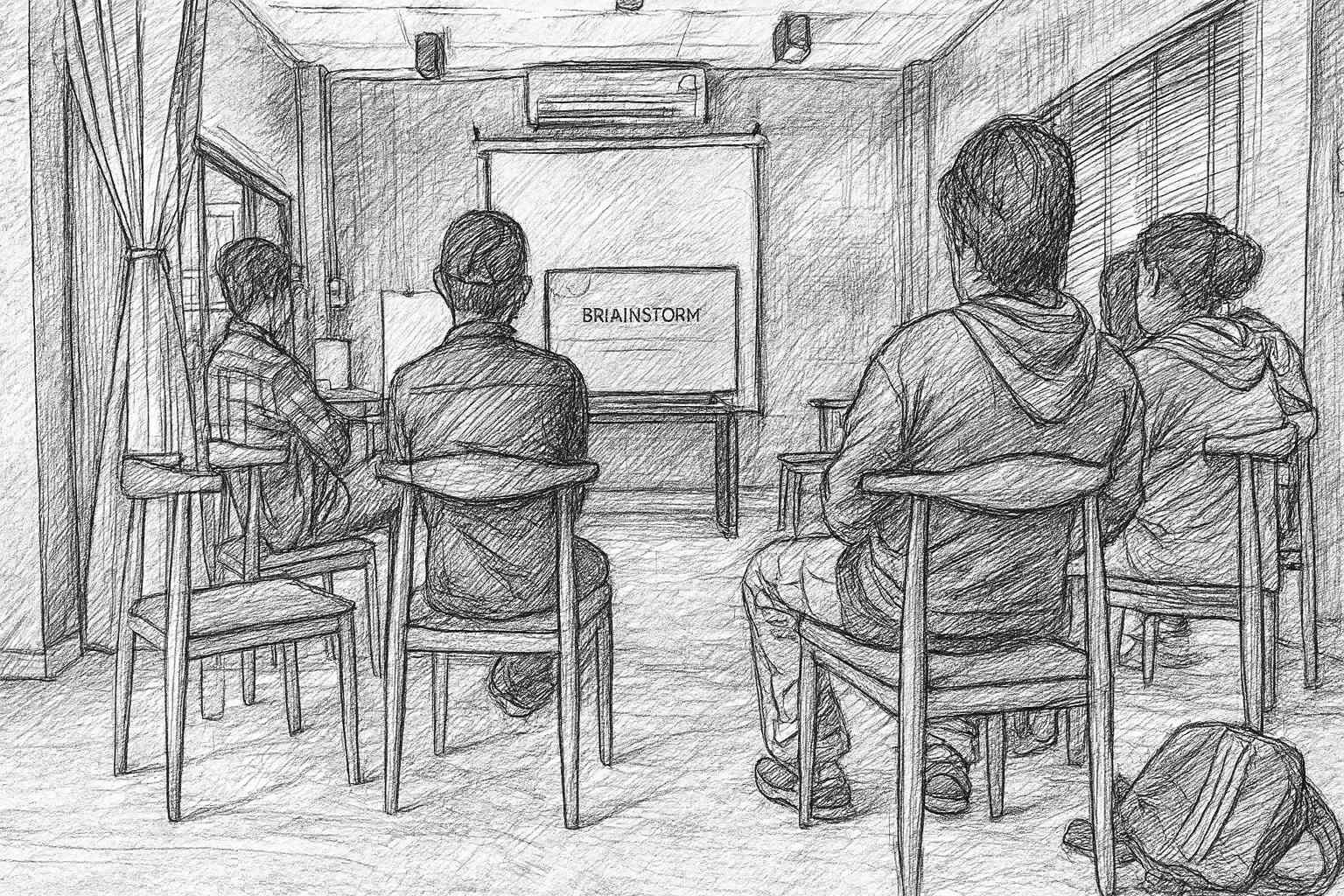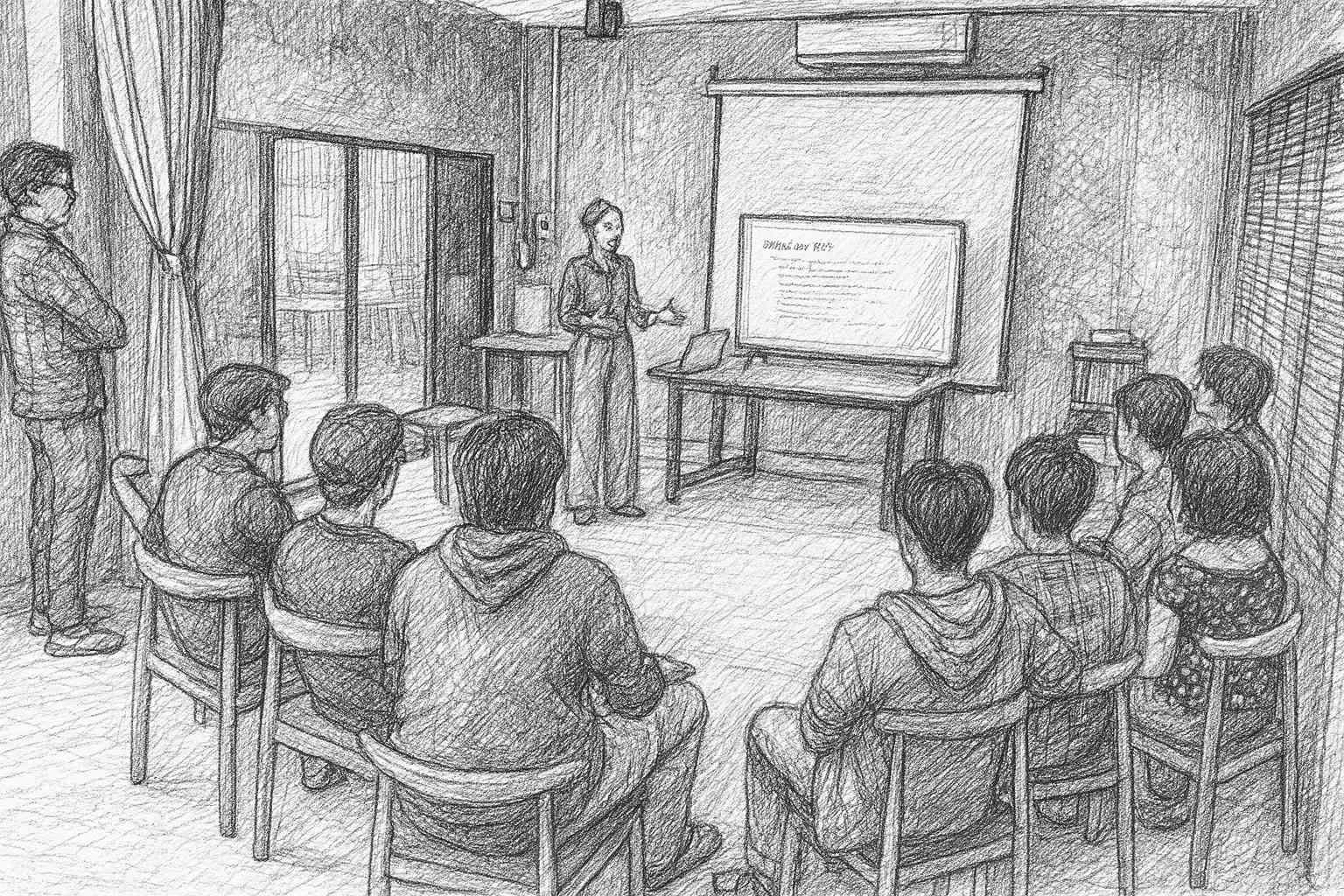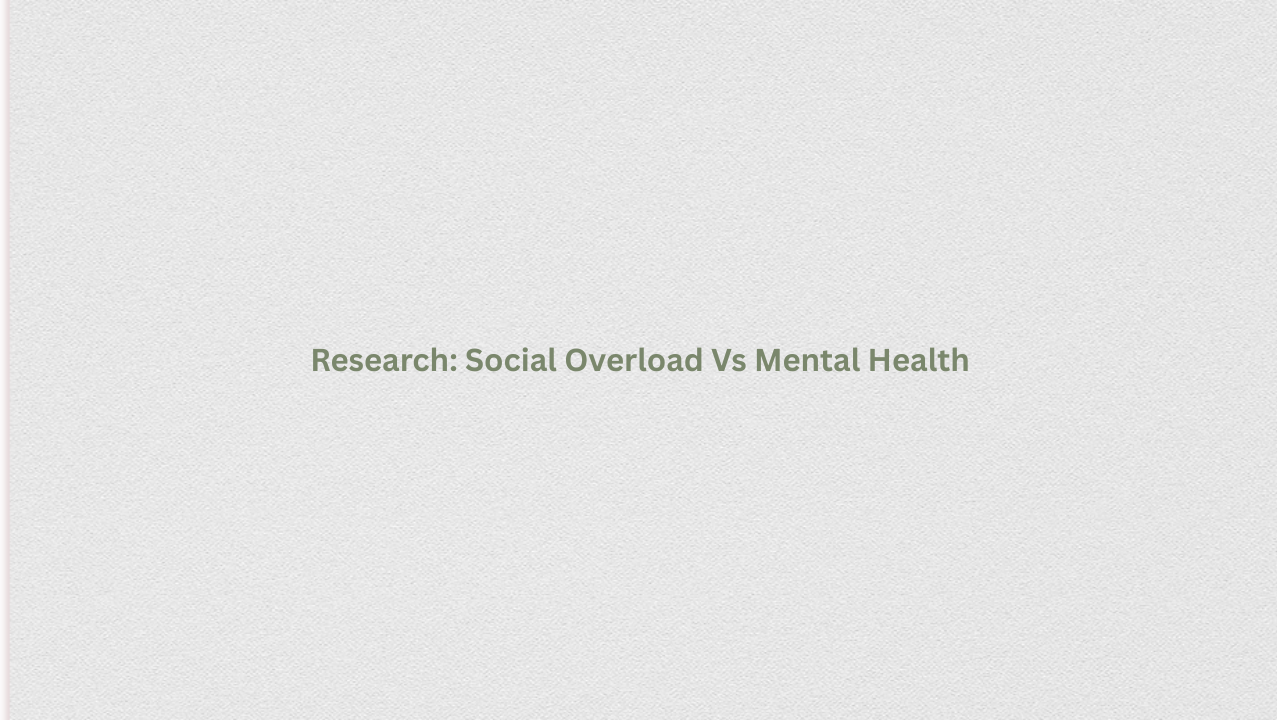Content
Program: Mental Health and Psychosocial Support (MHPSS) Facilitation Training
Date: March 2025
Location: Chiang Mai
Participants: frontline participants
Facilitators: Calm Lab


Photos taken during the training session, edited with AI to protect their identity and safety
Purpose of the Training
This Facilitation Training was designed to equip youth with lived experience of trauma and disability with basic facilitation and psychosocial support skills. The goal is to enable them to lead peer-based mental health support sessions in physical rehabilitation centers and conflict-affected communities.
Training Structure & Approach
The session utilized experience-sharing, group reflection, and practical facilitation exercises with a trauma-informed and inclusive lens. Key sessions included:
- Introduction & Safe Space Creation
- Understanding MHPSS and Trauma
- Facilitation & Communication Skills
- Real-Life Case Handling
- Self-Care & Sustainability
- Wrap-Up & Next Steps
Accessibility and emotional safety were prioritized throughout, with alternatives for participation and breaks integrated into the design.
Key Observations & Participant Feedback
Throughout the session, participants expressed deep appreciation for the Calm Lab initiative, acknowledging both its relevance and the respectful, experience-based approach taken by the facilitators. Many shared a strong desire to continue participating in future activities, indicating that the training structure successfully fostered a sense of purpose, ownership, and ongoing motivation.
However, several logistical and emotional needs also became clear. A recurring concern among participants was the need for safe, open, and accessible venues. Some individuals voiced discomfort with enclosed or closed-door spaces, which they associated with past traumatic experiences. This feedback affirmed the importance of selecting calm and open environments to ensure psychological safety and maximize engagement.
The issue of accessibility extended beyond just physical space. Participants highlighted that flexible scheduling and reliable transportation are crucial, particularly given their disabilities and daily challenges. In response, the program incorporated accessible locations and built-in flexibility to accommodate diverse needs. The value of inclusivity and adaptability was repeatedly emphasized. Participants appreciated having multiple ways to engage in the training, whether through speaking, writing, or simply listening without pressure.
Another key insight emerged around leadership representation. There was a noted interest in ensuring both male and female facilitators are involved, including those with visible and invisible disabilities. This request aligned with the program’s goals and was integrated into the facilitation team, reinforcing the importance of representation and role modeling. Lastly, the creation of safe, confidential spaces for open sharing was particularly praised. Participants emphasized how these settings allowed them to speak freely, reflect on their experiences, and support one another without fear of judgment or exposure.
These insights not only validated the overall approach of the facilitation training but also underscored the necessity of trauma-informed, inclusive design for all future activities.
Lessons Learned
- Trauma-informed design isn’t optional, it’s essential. Venues, timelines, and facilitation styles must prioritize psychological safety.
- Youth participants are not just beneficiaries but active contributors and potential facilitators.
- Inclusion means offering flexible modes of participation, diverse leadership, and sensory-sensitive approaches.
- Effective peer support starts with acknowledging lived experience and equipping participants with both knowledge and self-care tools.

